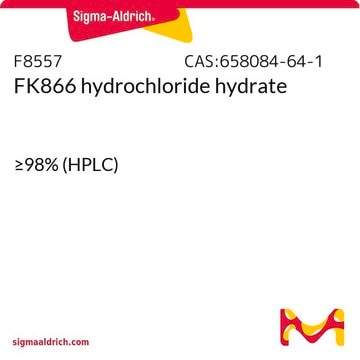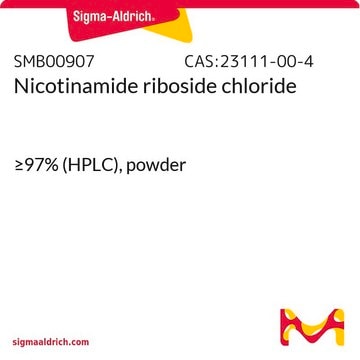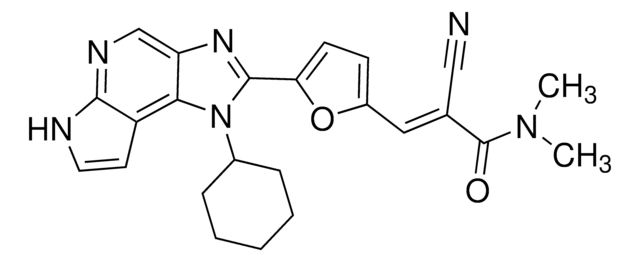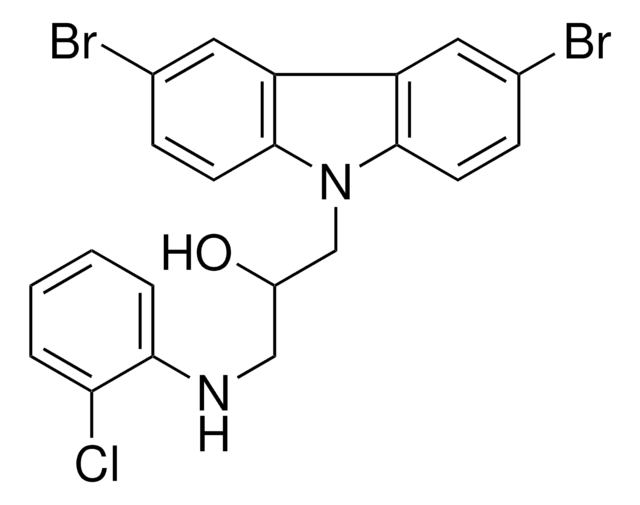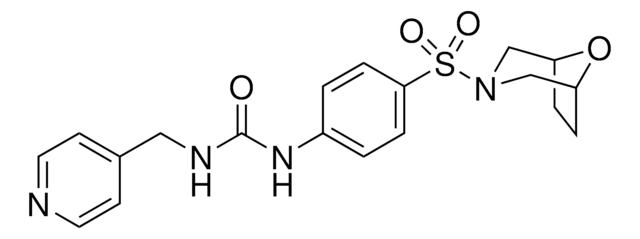D8446
P7C3
≥98% (HPLC)
Synonyme(s) :
3,6-Dibromo-a-[(phenylamino)methyl]-9H-carbazole-9-ethanol
About This Item
Produits recommandés
Pureté
≥98% (HPLC)
Forme
powder
Couleur
white to off-white
Solubilité
DMSO: 34 mg/mL
Température de stockage
2-8°C
Chaîne SMILES
OC(CNc1ccccc1)Cn2c3ccc(Br)cc3c4cc(Br)ccc24
InChI
1S/C21H18Br2N2O/c22-14-6-8-20-18(10-14)19-11-15(23)7-9-21(19)25(20)13-17(26)12-24-16-4-2-1-3-5-16/h1-11,17,24,26H,12-13H2
Clé InChI
FZHHRERIIVOATI-UHFFFAOYSA-N
Application
Actions biochimiques/physiologiques
Degeneration of the hippocampus is an early manifestation of Alzheimer′s disease. P7C3 promotes neurogenesis in the subgranular zone of the hippocampal dentate gyrus, the site of normal neurogenesis in adult mammals, making it an important lead compound in development of new Alzheimer′s treatments.
Mention d'avertissement
Danger
Mentions de danger
Conseils de prudence
Classification des risques
Acute Tox. 3 Oral - Eye Dam. 1
Code de la classe de stockage
6.1C - Combustible acute toxic Cat.3 / toxic compounds or compounds which causing chronic effects
Classe de danger pour l'eau (WGK)
WGK 3
Point d'éclair (°F)
Not applicable
Point d'éclair (°C)
Not applicable
Certificats d'analyse (COA)
Recherchez un Certificats d'analyse (COA) en saisissant le numéro de lot du produit. Les numéros de lot figurent sur l'étiquette du produit après les mots "Lot" ou "Batch".
Déjà en possession de ce produit ?
Retrouvez la documentation relative aux produits que vous avez récemment achetés dans la Bibliothèque de documents.
Notre équipe de scientifiques dispose d'une expérience dans tous les secteurs de la recherche, notamment en sciences de la vie, science des matériaux, synthèse chimique, chromatographie, analyse et dans de nombreux autres domaines..
Contacter notre Service technique

